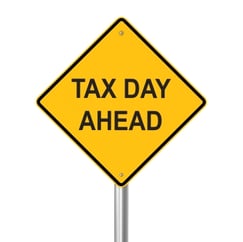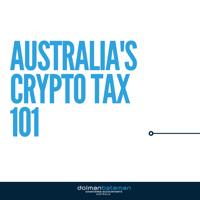Understanding Capital Gains Tax (CGT) is crucial for anyone involved in selling assets like real...
Don't Forget The Tax (Tax on Damages in Commercial Litigation)
 Generally speaking, damages awarded for compensation for loss of profits will be taxable in the year of the receipt (note 1). In calculating those damages, income tax is deducted from the calculated losses on the assumption that the lost profits would have attracted tax (note 2). To ensure that the award for damages puts the claimant back to the position, but for, the cause of action, a ‘gross-up’ adjustment is performed to ensure that the claimant is not undercompensated by taxing the underlying claim and taxing it again on receipt (note 3).
Generally speaking, damages awarded for compensation for loss of profits will be taxable in the year of the receipt (note 1). In calculating those damages, income tax is deducted from the calculated losses on the assumption that the lost profits would have attracted tax (note 2). To ensure that the award for damages puts the claimant back to the position, but for, the cause of action, a ‘gross-up’ adjustment is performed to ensure that the claimant is not undercompensated by taxing the underlying claim and taxing it again on receipt (note 3).
Some claims may be presented on a before tax basis. That is, the claim for loss of profits or wasted costs may not include any deduction for income tax expense. This may be done for simplicity. For example, in cases involving a trust, the trustee may have discretion to distribute different amounts (and also classes of) of profits to different beneficiaries. Often these beneficiaries will include individuals and determining the appropriate tax rate can be difficult if the beneficiaries receive other sources of income and it is not known.
Consideration however needs to be given where the following conditions apply:
- The tax rate applicable to each relevant year of loss is or will be different from the expected tax rate in the year of award. A claim involving a corporate entity which include periods of loss prior to the 2002 and/or includes a period of future loss may not be the same as the current 30% corporate tax rate;
- There are significant income tax timing differences relating to the cash flows. Tax laws inform what is considered to be assessable income and allowable deductions yet expert accountants often simply apply a tax rate on the annual net cash flows calculated. Claims which include a significant component of capital expenditure would typically not attracted a full tax deduction in the year that the expenditure was incurred;
- A calculation for interest on damages has been calculated. Often an expert accountant will calculate simple interest, using the Supreme Court rules, as part of the total claim. Claims for loss which ignore tax will invariable lead to an over-claim for interest;
- The cause of action has resulted in tax losses. This benefit needs to be taken into consideration, particularly when there is a calculation of a ‘gross-up’ adjustment to a claim for damages;
- The compensation awarded is unlikely to be considered ‘income’ under tax laws. Court Awards for personal injury claims, including defamation suffered by a company (note 4) , are considered to be ‘capital’ in nature and are specifically exempt from capital gains tax (note 5). However, it is unclear (I am not aware of any test cases in Australia) how awards for an inquiry as to an account of profits as a result of a patent infringement will be treated for tax purposes in the year of receipt. I suspect that such an award will be considered ‘capital’ in nature for tax purposes, but still attract capital gains tax. Out-of-court settlements might also attract capital gains tax, if the settlement cannot be distinguished between its income and capital components, so consideration also needs to be given to tax in settlement negotiations.
If you need help in determining the tax applicable to the damages award and whether a gross up for tax should be taken into account, please call us on (02) 9411 5422.
Notes
1. Either as ordinary income under section 6-5 of the Income Tax Assessment Act 1997 (which relies on common law principles) or as statutoryincome under section 15-30 or 70-115 of the Income Tax Assessment Act.
2. Known as the Gourley Principle - this principle was confirmed in Australia in Cullen v Trappell (1980) 29 ALR 1.
3. Gill v Asutralian Wheat Board (1980) 2 NSWLR 795.
4. Commission of Taxation v Sydney Refractive Surgery Centre Pty Ltd (2008) FCAFC 190.
5. Section 118-37(1) of the Income Tax Asessment Act 1997.
6. Taxation Ruling TR95/35 is a useful guide in understanding the potential capital gains tax implications.


